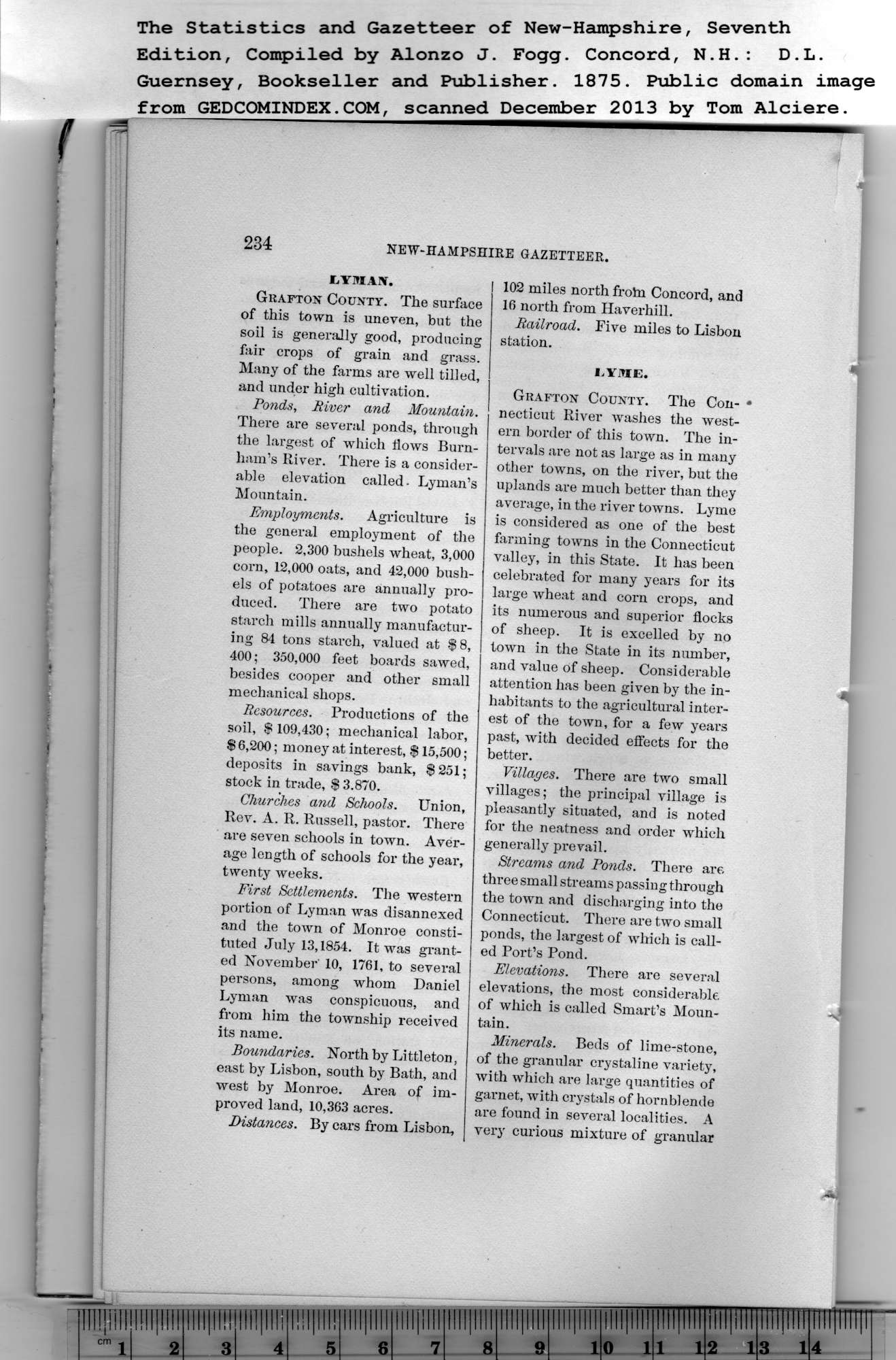|
234
The Statistics and Gazetteer of New-Hampshire, Seventh
Edition, Compiled by Alonzo J. Fogg. Concord, N.H.: D.L.
LYMAN.
Gkafton County. The surface
of this town is uneven, but the
soil is generally good, producing
fair crops of grain and grass.
Many of the farms are well tilled,
and under high cultivation.
Ponds, River and Mountain.
There are several ponds, through
the largest of which flows Burn-
ham’s River. There is a consider-
able elevation called- Lyman’s
Mountain.
Employments. Agriculture is
the general employment of the
people. 2,300 bushels wheat, 3,000
corn, 12,000 oats, and 42,000 bush-
els of potatoes are annually pro-
duced. There are two potato
starch mills annually manufactur-
ing 84 tons starch, valued at $8,
400; 350,000 feet boards sawed,
besides cooper and other small
mechanical shops.
Resources. Productions of the
soil, $ 109,430; mechanical labor,
$ 6,200; money at interest, $ 15,500;
deposits in savings bank, $ 251;
stock in trade, $ 3.870.
Churches and Schools. Union,
Rev. A. R. Russell, pastor. There
are seven schools in town. Aver-
age length of schools for the year,
twenty weeks.
First Settlements. The western
portion of Lyman was disannexed
and the town of Monroe consti-
tuted July 13,1854. It was grant-
ed November 10, 1761, to several
pei'sons, among whom Daniel
Lyman was conspicuous, and
from him the township received
its name.
Boundaries. North by Littleton,
east by Lisbon, south by Bath, and
west by Monroe. Area of im-
proved land, 10,363 acres.
Distances. By cars from Lisbon, |
102 miles north froln Concord, and
16 north from Haverhill.
Railroad. Five miles to Lisbon
station.
LYME.
Grafton County. The Con- •
necticut River washes the west-
ern border of this town. The in-
tervals are not as large as in many
other towns, on the river, but the
uplands are much better than they
average, in the river towns. Lyme
is considered as one of the best
farming towns in the Connecticut
valley, in this State. It has been
celebrated for many years for its
large wheat and corn crops, and
its numerous and superior flocks
of sheep. It is excelled by no
town in the State in its number,
and value of sheep. Considerable
attention has been given by the in-
habitants to the agricultural inter-
est of the town, for a few years
past, with decided effects for the
better.
Villages. There are two small
villages; the principal village is
pleasantly situated, and is noted
for the neatness and order which
genei'ally prevail.
Streams and Ponds. There are
three small streams passing through
the town and discharging into the
Connecticut. There are two small
ponds, the largest of which is call-
ed Port’s Pond.
Elevations. There are several
elevations, the most considerable
of which is called Smart’s Moun-
tain.
Minerals. Beds of lime-stone,
of the granular crystaline variety,
with which are large quantities of
garnet, with crystals of hornblende
are found in several localities. A
very curious mixture of granular |
